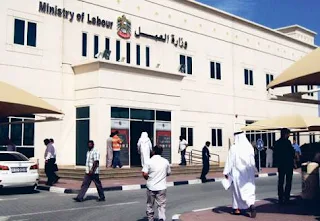HOW TO SPONSOR A HOUSE MAID IN UAE
Unlike normal residence permits, residence permits for maids or domestic help are for periods of one year if the sponsor is an expatriate, but if the sponsor is local citizen then the period is two years. It should be noted that only individual’s resident and not businesses may employ maids or domestic help. Such individuals will assume the role of the domestic helper’s sponsor for immigration purposes, provided they satisfy the conditions stipulated under Article 23 of the Decree, namely:
• Have a monthly salary of at least AED 6,000.
• The sponsor has not sponsored a domestic helper or a housemaid for one year ending on the date the application is submitted.
• The helper is not related to the sponsor.
• The sponsor resides in the country with his family.
There are additional requirements regarding women who practise certain professions such as in the fields of medicine and engineering.
It is illegal to employ a domestic help who is on someone else’s sponsorship. It is not permitted to transfer the sponsorship of a domestic helper to a new employer, unless a period of at least one year has lapsed from the date the helper last left the country. This is pursuant to Article 63 of the Decree which states that when an employment is terminated, the residence permit for employment is considered void and that, no entry permit or new visa can be issued unless after the lapse of six months from the last date of departure from the country, and for one year for house servants.Ó6
6.Article 63 Federal Law 1973
The deposit amount of a housemaid visa for Dubai was recently reduced from AED 5,000 to AED 2,000, immigration officers confirmed. (as per Gulf news report)
Contrary to past rules, however, this deposit of AED 2,000 will only be refunded upon the housemaid’s return to her home country. In the past, the deposit of Dh5,000 was refunded upon completion of the medical fitness test and stamping of the employment visa on the housemaid’s passport.
Documents required for Maid Visa
- · Your own salary certificate and labour contract.
- · Your tenancy agreement.
- · Your passport (and a copy).
- · Copy of the maid's passport (and original passport with entry permit after arrival in the UAE).
- · Passport photos of the maid (4 should be enough but bring a few extra).
- · If you (the sponsor) and the maid are the same nationality, then you will need an affidavit from your embassy or consulate to certify you are not related to the maid.
- · AED 5000 deposit for entry visa. Changed to AED 2000 for expat sponsors. Deposit of AED 2000 required from Emirati sponsors remains unchanged.
- · AED 5100 for residence visa (annual cost).
- · AED 300-400 for health card (annual cost).
- · AED 500 for other fees (approximately). Add AED 100 here and there for urgent processing.
Procedures:
1. Go to authorized typist & get form filled up. Pay AED 110 + separate typing fee (which varies from typist to typist). If urgent, pay additional AED 100.
2. Go to the General Directorate of Residency and Foreigners Affairs - Dubai & submit all documents after attaching courier sticker for non-urgent visa. For urgent, wait for a few minutes and receive the employment entry permit. You will have to pay a refundable deposit of AED 2,000 along with the application. (The deposit was reduced from AED 5000 to AED 2,000. See news update)
3. Send either original visa or copy to your maid. If only copy was sent, then deposit original at DNATA Visa Desk at Dubai airport or at DNRD counter.
Applying residence visa for your maid
1. Apply for residence permit and medical fitness report within 30 days of the arrival of your maid's entry into the country. Visit an authorized typist & pay for either urgent or non-urgent form & submit to DNRD counter.
2. After stamping, take your maid for a medical fitness test .All new maids will be screened for HIV, pregnancy, Hepatitis B, Syphilis, TB & Leprosy. The Hepatitis B vaccination which costs an additional AED 50 is given in 3 doses - immediately, booster after 1 month and booster after 6 months. If you keep the yellow certificate as proof of all three doses, then when renewing your maid's visa, you do not need to re-do this, as the vaccination and certificate is valid for 10 years.
Costs of Medical Fitness
• Normal fitness test costs AED 325 (AED 260 + AED 50 for Hepatitis B vaccination + AED 15 for courier and takes 5-7 working days to get the results.
• 48 hour service costs AED 420 (AED 370 + AED 50 for Hepatitis B vaccination). You can collect results in 2 working days.
• Urgent service costs AED 520 (AED 470 + AED 50 for Hepatitis B vaccination). You can collect results after 24 hours.
• There is also a 4 hour VIP service costing AED 740 (AED 690 + AED 50) but this is only for Al Safa & Knowledge Village employees and dependents.

